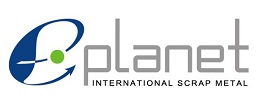Aluminium recycling is the procedure wherein scrap aluminium can be salvaged in products subsequent to its initial manufacture. The process encompasses basically re-melting the metal, which is far cheaper and energy concentrated than producing new aluminium through the electrolysis of aluminium oxide (Al2O3), that should first be mined from bauxite ore and afterwards refined by means of the Bayer process.
Aluminium recycling is a common practice ever since the early 1900s and widely capitalized during World War II. Aliminium recycling is not a new process. It was, though, a low-profile process ’til the late 1960s when the profound popularity of aluminium beverage cans placed recycling into the awareness of the general public at last.
The sources of recycled aluminium consist of automobiles, bicycles, boats, aircraft, computers, cookware, trenches, siding, wire, and several other products that require a sturdy light weight material, or a material with an extraordinary thermal conductivity. As recycling does not destroy the metal’s structure, aluminium can be reused for an indefinite period and still be utilized to manufacture any product for which new aluminium would have been used.
How aluminium is recycled
First, the user throws aluminium cans and foil into a recycle bin. The aluminium is then gathered and brought to a treatment plant. In the treatment plant the aluminium is arranged and cleaned and then all set for reprocessing. It then goes through a re-melt procedure and turns into melted aluminium, this eliminates the coatings and inks that may have existed on the aluminium. The aluminium is then molded into huge blocks called ingots. Each ingot comprises approximately 1.6 million drinks cans. The ingots are subsequently sent to mills where they are rolled out which makes the aluminium more flexible and robust. This is then produced into aluminium products like chocolate wrapping, cans and ready meal packaging. In just about six weeks, the reprocessed aluminium products are then sent back to the factories set to be used another time.
Advantages
The recycling of aluminium by and large produces noteworthy cost savings over the manufacture of new aluminium even when the cost of assortment, separation and recycling are taken into consideration. Over time, even greater national savings are made when the decrease in the capital costs related with landfills, mines and international shipment of raw aluminium are measured.
If energy is unswervingly associated to carbon dioxide, then recycled aluminium may well be said to make 5% of the carbon dioxide produced in the manufacture from raw materials. Scrap Metal Sydney offers aluminum recycling services to all those who require it.
